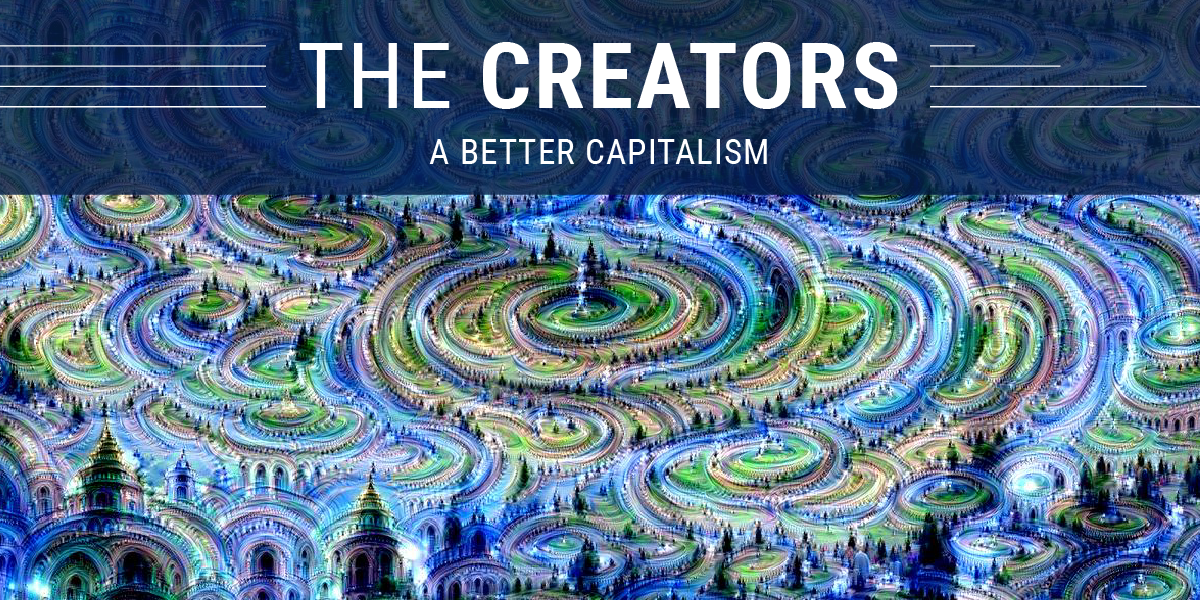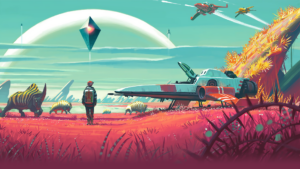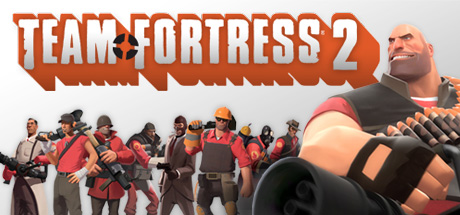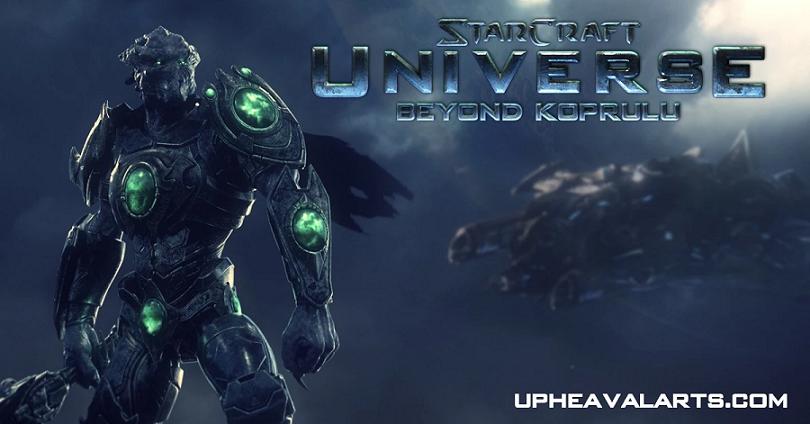“Writers have to get used to launching something beautiful and watching it crash and burn,” — Ursula K. Le Guin
Creators can be the absolute worst. And I am not talking about my fellow visionaries and Nitwitty writers, the Erics. Believe me when I say that our process of creation for this website is far from fluffy. I am talking about all those “artists” out there who believe that they are entitled to some sort of acknowledgement or creative freedom. That is not how art works.
As hard as this is to say, fans have the final word in whether or not something is good enough to purchase and consume. They are the consumers, the target audience. An author or producer has the right to produce whatever they hell they want but we the people are under no obligation to like or understand it. As a professional creator there is a level of accountability attached to published work. Your game or book can be profound, ahead of its time, immaculately written. And in the short term it can still be shit. Why? Because we live in a world of choice. We have gone from being a culture of limited options to living in a world that revolves around the internet and consumer demand and expectation. We have standards for the money we spend. Which, unfortunately for creators means the act of simply trying isn’t good enough, half way decent isn’t passing, and “I had a vision” means absolutely nothing in the face of the consumer question — “Is this really worth my time and money?”
Can’t We All Just Get Along
Now before your capitalism inspired gag reflex triggers take a moment to consider how important every moment is in this digital age and revolution. We are living in a time of unlimited access. So, it is only natural that we want to spend every moment engaging with something that we enjoy. There is simply no reason now to spend time watching, playing, or otherwise consuming, something that we don’t like. Now lately people seem to like sequels, and Mr. Carr is correct in his analysis of how giving people exactly what they want is a slow descent into mediocrity. The business side of all of this will happily pump out the same trash for similar benefits as long as the pattern works. The thing is I don’t think big sequel franchises like Transformers are so successful simply because fans think they are some critically acclaimed masterpiece. I think they enjoyed it because it was a surefire way to spend an afternoon having fun. They knew what they were getting ahead of time and the sequels all delivered more of that mechanized goodness. The artist in Michael Bay, as much as he may have loathed to make those films, was held accountable by his audience. The first film set a certain kind of standard and expectation.
Fandom is not born from nothing. It isn’t a naturally occurring force or energy. It is a fan’s love for a product and it is earned. They were given something, whether that means a video game, movie, or book, and that gift stopped being the author’s once they consumed it. After that initial transfer it doesn’t matter what the creator wants or what was intended, the audience decides what it takes away from that experience. Just as the renowned writer and storyteller Ursula K. Le Guin says above — a part of being a writer, or any creator for that matter, is releasing whatever you make to the world for judgment. in return the world is given free rein to love or hate that property in ways you might not understand, and there is a give and take in that relationship. That is the unfortunate nature of making things for mass consumption. Creativity is no longer the main pursuit when seeking to create something for a wider audience. Once that intent is brought into the artist’s relationship with their work the overall goal changes from creating for creation’s sake, to creating something for others. That kind of shift in energy brings with it a certain kind of responsibility.
A Kindly Understanding
All of that just means that Creators need to stop bitching about how overbearing a fan’s heart is and start thinking about how to manage expectations. It is not like directors, authors, actors, producers, musicians, have never been successful in doing something that is both commercially successful and creative. Those janky Transformers films, for all their filthy mediocrity are a master’s course in creating a film with mass appeal. They are literally crafted to reach as many target demographics as possible. When art starts to become business then the main goal shifts from following an artistic vision to finding reasons for people to show up. Creators are tasked with finding that magic carrot for people to chase with their wallet,.and Transformers does that on a level few competing films will ever be able to match. The things Transformers does well, namely its SFX and VFX, it does on an almost unmatched level. Of course that isn’t to say that they are a quality narrative experience, they aren’t. The characters are shallow and for time’s sake we won’t even mention the plot, but it does exactly what it promises. Which is cool fucking robots and a glitzy spectacle that can only be properly experienced on the big screen. The fact that it delivers on that experience is a net positive for not only artists, since it is these kind of films that bankroll the more creative stuff, but also for the audience. Despite the fact that the movie is narratively shit, the audience still demands a certain apocalyptic presentation to their dumpster fire.
Now, here is why creators really suck sometimes — they love to blame the audience for the process outlined above. Like some how it is Fandom’s fault for enjoying a certain kind of predictability or set standard of entertainment. And my question is always “What did they expect?” This same exact barrier of entrance exists in all art. Look at some of the most famous directors of our time, people like Wes Anderson, Christopher Nolan, J.J. Abrams, not a single one of these people creates art solely for the sake of vision or expression. Every single one of their films follows the same pattern outlined above and for good reason. It is a part of being a large scale successful creator.
While I agree with Carr that The Force Awakens was a safe, sub par expansion of the Star Wars universe, I think that is a part of the reason why it succeeded where the prequels, beautiful “noble” failures that they are, failed. It is because they simply were bad. They tried to do good things, and Lucas took a risk but it didn’t pay off. He wasn’t able to balance the fan expectation and his art and the fans weren’t satisfied with what they got. That is not their fault. That is a directorial and creative failure. Lucas’s introduction of Jar Jar Binks was not a result of Fandom it was Lucas being dumb. There wasn’t an equal trade off in keeping with the tone fans had become bonded with and with introducing new and branching lore. In essence, fans didn’t do anything to Star Wars, Lucas just failed on his own. It was his inability to harness his creative energy and bend it to what his franchise had become in the public domain. The story wasn’t fully his anymore and he was never able to acknowledge that fact and edit his process accordingly.
For The Good Of Everyone
In our free market world there is only one constant and that is competition. Between aggregate review sites like Rotten Tomatoes and Metacritic, to blogs like Kotaku and The AVclub and Nitwitty (of course), people have the resources now to find and access what they like. These are a set of tools that essentially forces creators to be honest. Take this year’s most noteworthy trainwreck, No Man’s Sky. A lot of people have a lot of different opinions on why this game burst into flame upon atmospheric re-entry and I am here to call most of them wrong. I mean, I won’t deny that hype, poor marketing, and even poorer community management, all really hurt this game’s overall odds. But there is so much more going on here than simply Fandom’s disappointment. Actually I think the reality of things is simple, Hello Games, along with directors Sean Murray and David Ream, tried something new and and exciting. Their idea was to create a space themed exploration and survival game that was procedurally generated and they succeeded in doing so. But in that creative process they seemed to have forgotten that just because they had an idea, and followed through and successfully brought that idea to life, that people can still think their idea was bad.
No Man’s Sky was the prime example of a company trying to do something new but feeling angry about the fact that people didn’t agree that their shiny new thing is cool. No Man’s Sky got stuck between fan’s insatiable desire and their own expectations about what their game should be, a disconnect that lead to an experience fans didn’t really know how to react to. One one hand you have a bunch of super creative designers pushing a glittering new experience- unlimited space travel and exploration. On the other hand you have a totally experimental “thing” being sold for the box price of a premium AAA game. I think everyone here can see why this party ended with an emergency evacuation. The sad thing is that afterwards everyone attacked the fans. I mean how dare they pay full price for a game and expect that game to deliver what most other games do at that price point. What Hello Games completely failed to do was think about their game and the expectations rightfully riding on its performance.
Once again, let’s go back to the beginning here, in today’s world people have nearly unlimited options when picking out a game to play. Look at the current lineup for PS4, XBOX One, and PC. We have Witcher 3, Deus Ex, Dark Souls 3, Overwatch, World of Warcraft’s new expansion, Destiny, and other huge, AAA, franchise games that offer a tried and true gaming experience. Hello Games took a big gamble with No Man’s Sky, they bet everything they had that the new and experimental nature of their game would compete with the other currently released gaming giants -and they lost that bet. It is that easy. Hype helped create that situation, and the downsides of that frothing fan frenzy are certainly something to be concerned about but it really had very little to do with why that game ended up sucking. That fault is held entirely by its creators.
Thinking of something new and shiny is easy. It is as simple as smashing an idea or two together and spitting out whatever that collision makes. What is hard is creating something with a real tangible value. To do that you not only need a good idea, but you need execution, marketing, vision, passion, and even then things can go wrong, but none of that is the fault of a fan. There is a reason so few people choose to create. To create is to try and fail. Every genius mind from Van Gogh to Spielberg has crashed and burned. That is how a creator learns. He tries something new and more often than not it takes a hundred or even thousand useless new things to find that one idea that works. Creators need to stop blaming the ever evolving fandom and reconnect with that thing that made them great in the first place. Taking a leap and seeing where it goes.












